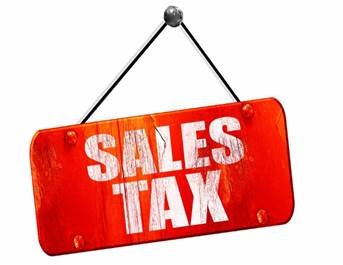
One of the more interesting components of the Tax Cuts and Jobs Act, effective December 22, 2017, is the Qualified Opportunity Zone program. The program provides potentially significant tax incentives for business investment in economically distressed areas. A Qualified Opportunity Zone (“QOZ”) is a low-income community designated a QOZ by the Secretary of the U.S. Treasury. All QOZs were designated as of June 2018. The legislation does not allow for any other designation or determination periods, so all QOZs have already been identified and, absent a change in the law, no new QOZs will be designated.
Tax Benefits for Investors
The QOZ program is designed to spur economic development in low-income communities by providing tax benefits to investors. Investors in the program can defer paying tax on any prior capital gains invested in a Qualified Opportunity Fund until the earlier of the date on which the investment in a QOF is sold or exchanged, or December 31, 2026. A QOF is an investment vehicle that is set up as either a partnership or corporation for investing in “qualified property” that is used in an active trade or business. The capital gains must be invested into a QOF within 180 days after the sale giving rise to such gains. If the Qualified Opportunity Fund investment is held for longer than 5 years, there is a 10% exclusion of the deferred gain (i.e., 10% of the gain is no longer taxable). If held for more than 7 years, then 15% of the deferred gain is excluded. If the investor holds the investment in the QOF for at least 10 years, then, in addition to the partial exclusion of the originally invested gain, the investor is eligible for an increase in basis of the Qualified Opportunity Fund investment equal to its fair market value on the date that the QOF investment is sold or exchanged. In other words, any gain realized during the time the investor held the QOF investment will be tax-free!
Qualified Property
“Qualified property” means either QOZ stock, QOZ partnership interests, or QOZ business property. QOZ stock/partnership interests must be held in a QOZ business that owns QOZ business property. “QOZ business property” is tangible property used in a trade or business if:
- Such property is purchased by the QOF after December 31, 2017;
- The original use of such tangible property commences with the QOF or the QOF substantially improves the property; and
- During substantially all of the QOF’s holding period for such property, substantially all of the use of such property is in a QOZ.
QOF Implementation
Many questions about the implementation of this new program were unanswered in the legislation. In October, the IRS released proposed regulations as well as a Revenue Ruling. One of the most common (and important) questions was whether rental real estate is permissible QOZ business property. The Revenue Ruling provides some guidance through an example. In the example, the QOF purchases tangible property in a QOZ. The tangible property consists of land with an existing factory. The QOF intends to convert the factory into residential rental property. While not directly addressing the intended use of residential rental property, but instead focusing on the “original use” and “substantial improvement” rules (not discussed in detail herein), the Revenue Ruling implicitly approves residential rental property as permissible QOZ business property.
Active Trade or Business?
But, the Revenue Ruling does not provide any insight on whether the mere ownership of such property is an “active trade or business.” There is a long and complicated relationship between rental real estate and “active conduct of a trade or business” under the Federal tax laws. The Internal Revenue Code and Treasury Regulations traditionally require a minimum level of activity of the owner/taxpayer, often precluding passive ownership of real property (such as rental property subject to triple net leases) from the applicable definition of “active trade or business.” For now, it is promising that such property is acceptable QOZ business property, but further guidance is still needed.
Taxpayer’s Reinvested Gains
Another question was whether a taxpayer’s reinvested gains must be capital gains or if ordinary gains qualify as well. (The applicable Internal Revenue Code section only uses the word “gain.”) The Proposed Regulations clarify that only capital gains, both short-term and long-term, are eligible.
Conclusion
There remain many questions to be answered and the IRS has promised additional guidance. Since this program has an expiration date, taxpayers must reinvest capital gains in a QOF on or before December 31, 2019 to benefit from the full 15% exclusion under the program. Thus, such additional guidance should be coming relatively soon.
The QOZ rules are complicated, with many technical requirements. Accordingly, this article only provides a broad overview of the program. If you would like to learn more about the program and its applicable rules, please contact your Carlile Patchen & Murphy LLP attorney.





0 Comments